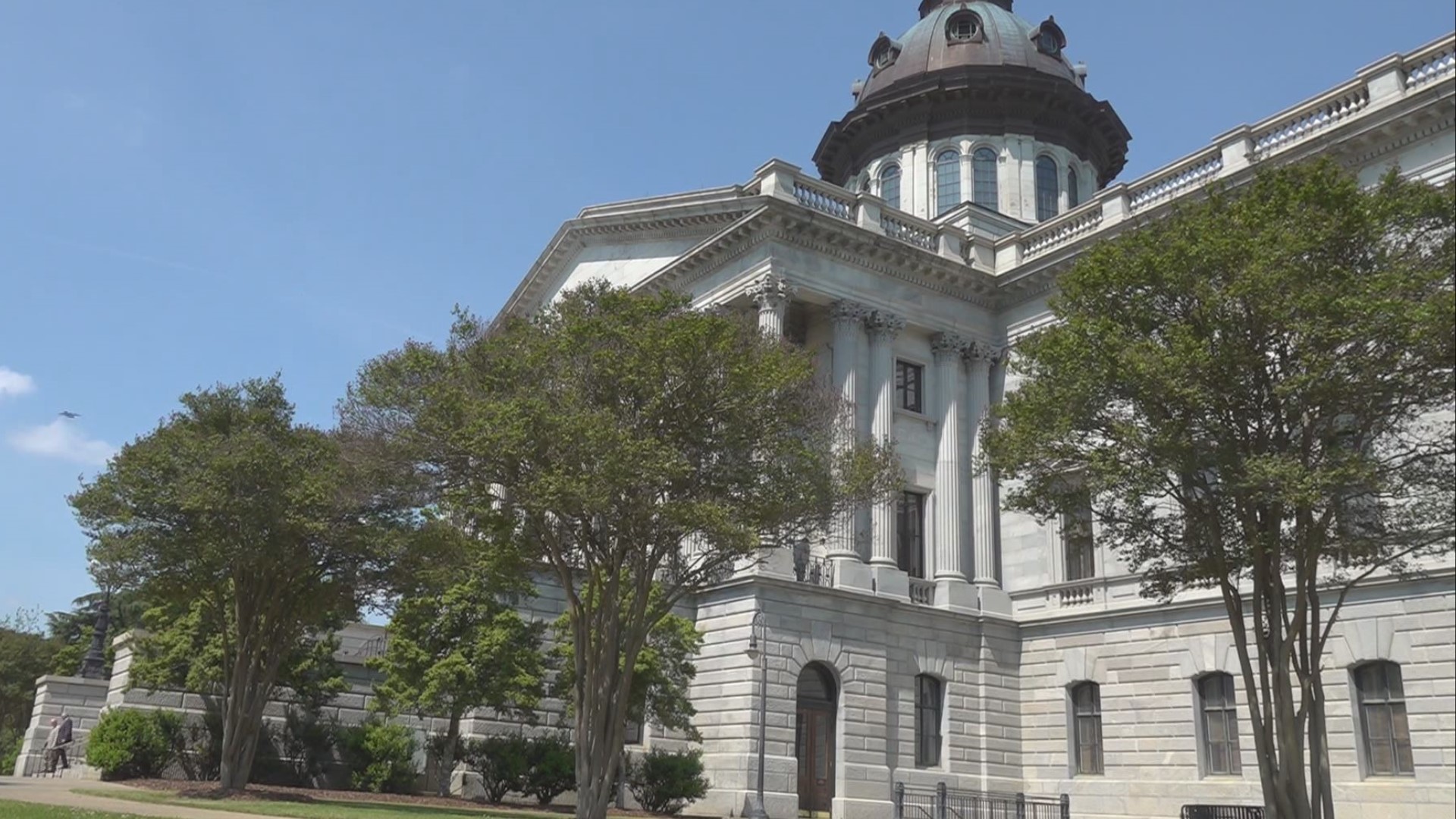COLUMBIA, S.C. — Teachers, correctional facility employees and state troopers are just some of the positions that might be seeing salary increases next year. The Senate Finance Committee has approved a $13 billion budget for the next fiscal year that would give pay bumps to state workers.
"I think we need the best teachers in our district and we need to pay our teachers well. What they do is so important to educate our children," Columbia resident Adam Lynch shares. "Not only do we need to pay teachers well, but we also need to make sure that teachers are one just staying current with the inflationary environment, and then on top of that, they’re being paid well too."
Lynch is a parent to four young children, and says he wants the best education his kids can get. But right now, South Carolina and schools across the country are struggling to recruit and retain educators.
"Our schools opened this school year with about 15 hundred vacant teaching positions," AP U.S. Government teacher Patrick Kelly explains. "That’s a 39% increase over that number last year, which was an increase over the prior year, over the prior year. Like, it’s been a cycle."
In addition to being a teacher in Richland School District 2, Kelly is the director of governmental affairs for Palmetto State Teachers Association. He says a pay increase might help with this shortage.
"While salary alone isn't the only thing that impacts teacher recruitment and retention, we’re fooling ourselves if we don't acknowledge that we need to make teacher pay more competitive not just with what’s being offered in other states, but in other industries right now," Kelly explains. "We’re increasingly seeing teachers leaving the profession because they can receive much higher pay for their skill set and their qualifications in the private sector, so if we’re going to reverse this teacher shortage, teacher salaries have to be a part of that equation."
Educators aren’t the only state employees who might see a pay increase, though. All state workers making less than $50,000 would get a $2,500 increase in their salary.
"And those are the ones hit the hardest on inflation. Inflations are picking the pockets of our state employees," Senator Harvey Peeler said in Tuesday's finance committee meeting.
If employees make more than $50,000, they would get a 5% raise. This is a measure Senator Darrell Jackson says is significant
"I think if I’m not mistaken, this is perhaps the largest increase that I’ve seen since I’ve been here one time for state employees," Jackson shared in the meeting. "That’s quite a statement that we’re sending to our state employees."
This would expand to jobs like nurses and officers working in the state prison system.
"More staff means more security, safer prisons, safer for the public and safer for everyone who’s involved," South Carolina Department of Corrections Director Bryan Stirling details.
Stirling says higher salaries will help recruit and retain employees in security, mental health and nursing roles for the department. Since he started in 2013, Stirling tells me gradual salary increases have helped with hiring.
"Before it was one in, one out. Now we are adding, adding, adding," Stirling shares about the additional roles his department has been able to add thanks to higher salaries and more money in the budget.
The state is also covering any increases in health insurance premiums for state workers.
Now, the approved budget is heading to the Senate floor. The House must now also sign off on these increases.
"What’s exciting is not just seeing rhetoric around it. No one’s ever really said, ‘We shouldn’t support teachers or try to retain teachers’ but seeing common sense measures like paid parental leave, higher pay, seeing those actually getting moving in the legislative process is encouraging and good first steps," Kelly explains. "But there’s a lot more work to be done and so we’re hopeful to see that the work that’s being done now is the starting place and not the end, and that we build on this as we work through the end of this session and into the next legislative session."

